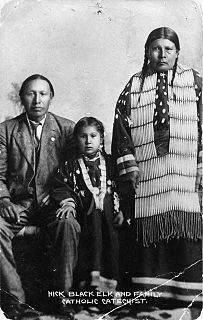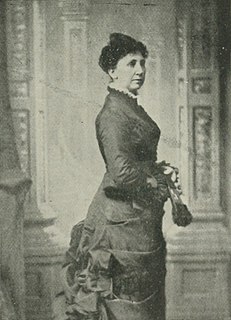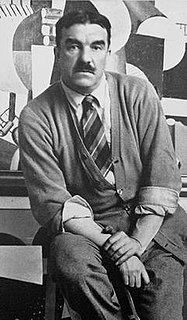A Quote by Ralph Waldo Emerson
By his machines man can dive and remain under water like a shark; can fly like a hawk in the air; can see atoms like a gnat; can see the system of the universe of Uriel, the angel of the sun; can carry whatever loads a ton of coal can lift; can knock down cities with his fist of gunpowder; can recover the history of his race by the medals which the deluge, and every creature, civil or savage or brute, has involuntarily dropped of its existence; and divine the future possibility of the planet and its inhabitants by his perception of laws of nature.
Quote Topics
Air
Angel
Atoms
Brute
Carry
Cities
Civil
Coal
Creature
Deluge
Dive
Divine
Down
Dropped
Every
Existence
Fist
Fly
Future
Gunpowder
Hawk
His
History
Inhabitants
Knock
Laws
Laws Of Nature
Lift
Like
Loads
Machines
Man
Medals
Nature
Perception
Planet
Possibility
Race
Recover
Remain
Savage
See
Shark
Sun
System
The History Of
Ton
Universe
Water
Whatever
Which
Related Quotes
Nature is the system of laws established by the Creator for the existence of things and for the succession of creatures. Nature is not a thing, because this thing would be everything. Nature is not a creature, because this creature would be God. But one can consider it as an immense vital power, which encompasses all, which animates all, and which, subordinated to the power of the first Being, has begun to act only by his order, and still acts only by his concourse or consent ... Time, space and matter are its means, the universe its object, motion and life its goal.
Man with all his noble qualities, with sympathy which feels for the most debased, with benevolence which extends not only to other men but to the humblest living creature, with his god-like intellect which has penetrated into the movements and constitution of the solar system- with all these exalted powers- Man still bears in his bodily frame the indelible stamp of his lowly origin.
The life of an Indian is like the wings of the air. That is why you notice the hawk knows how to get his prey. The Indian is like that. The hawk swoops down on its prey, so does the Indian. In his lament he is like an animal. For instance, the coyote is sly, so is the Indian. The eagle is the same. That is why the Indian is always feathered up, he is a relative to the wings of the air.
If we have dwelled on Godel's work at some length, is it because we see it in the mathematical analogy of what we would call the the ultimate paradox of man's existence. Man is ultimately subject and object of his quest. While the question whether the mind can be considered to be anything like a formalized system, as defined in the preceding paragraph, is probably unanswerable, his quest for an understanding of the meaning of his existence is an attempt at formalization.
There is an earthly sun, which is the cause of all heat, and all who are able to see may see the sun; and those who are blind and cannot see him may feel his heat. There is an Eternal Sun, which is the source of all wisdom, and those whose spiritual senses have awakened to life will see that sun and be conscious of His existence; but those who have not attained spiritual consciousness may yet feel His power by an inner faculty which is called Intuition.
A rich man's body is like a premium cotton pillow, white and soft and blank. ''Ours'' is different. My father's spine was a knotted rope, the kind that women use in villages to pull water from wells; the clavicle curved around his neck in high relief, like a dog's collar; cuts and nicks and scars, like little whip marks in his flesh, ran down his chest and waist, reaching down below his hip bones into his buttocks. The story of a poor man's life is written on his body, in a sharp pen.
God's beneficence streams out from the morning sun, and his love looks down upon us from the starry eyes of midnight. It is his solicitude that wraps us in the air, and the pressure of his hand, so to speak, that keeps our pulses beating. O! it is a great thing to realize that the Divine Power is always working; that nature, in every valve and every artery, is full of the presence of God.
Today the manliest man would be ashamed to look into the eyes of the woman by his side and tell her that he is the master because he could knock her down with perfect ease, and break her bones with much greater facility than she could his. And yet, out of man's brute nature, out of that most ignoble in himself, has come his loudest assumption of superiority, his longest and lowest tyranny.
This is how one pictures the angel of history. His face is turned toward the past. Where we perceived a chain of events, he sees one single catastrophe which keeps piling wreckage and hurls it in front of his feet. The angel would like to stay, awaken the dead, and make whole what has been smashed. But a storm is blowing from Paradise; it has got caught in his wings with such violence that the angel can no longer close them. This storm irresistably propels him into the future to which his back is turned, while the pile of debris before him grows skyward. The storm is what we call progress.
It is a mistake to talk about the artist looking for his subject. In fact, the subject grows within him like a fruit and begins to demand expression. It is like childbirth. The poet has nothing to be proud of. He is not master of the situation, but a servant. Creative work is his only possible form of existence, and his every work is like a deed he has no power to annul. For him to be aware that the sequence of such deeds is due and ripe, that it lies in the very nature of things, he has to have faith in the idea; for only faith interlocks the system of images for which read system of life.
No one is without Christianity, if we agree on what we mean by that word. It is every individual's individual code of behavior by means of which he makes himself a better human being than his nature wants to be, if he followed his nature only. Whatever its symbol - cross or crescent or whatever - that symbol is man's reminder of his duty inside the human race.










































